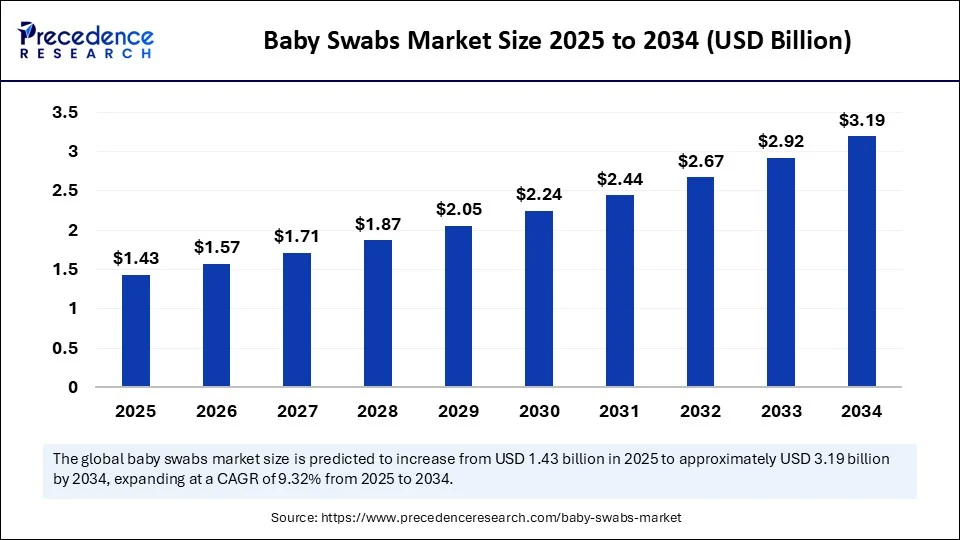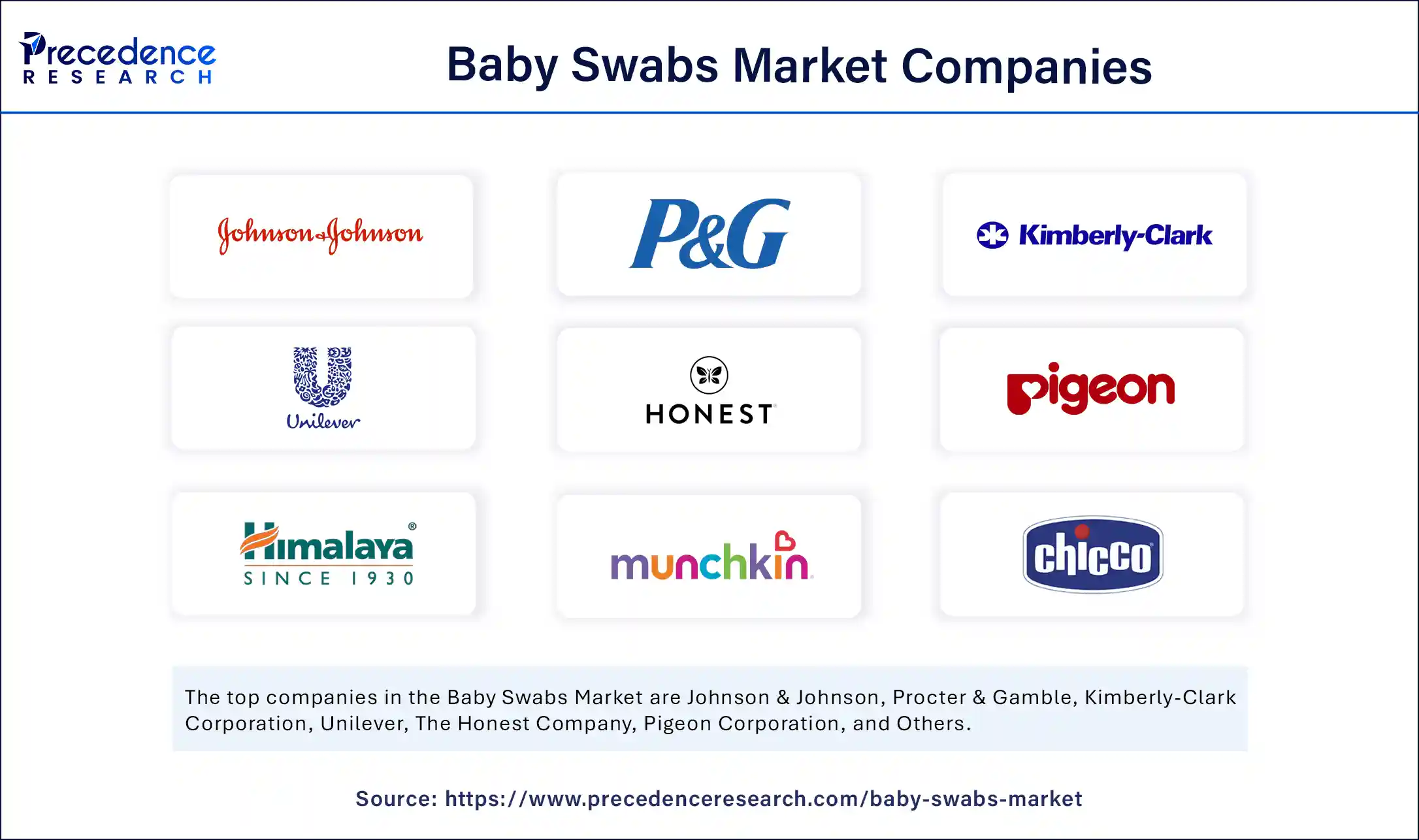
Market Overview
The Baby Swabs Market serves as a critical component of infant care routines, offering soft-tipped applicators designed for precision and safety. These swabs are used in multiple daily tasks, including cleaning delicate areas, administering ointments, and maintaining hygiene. As caregivers increasingly seek gentle and hygienic options for newborns and toddlers, the Baby Swabs Market has evolved to include designs like angled tips, antibacterial-soaked variants, and multi-pack dispensers, reinforcing its role in modern caregiving.
AI and Innovation
AI-driven insights are influencing product development in the Baby Swabs Market by revealing consumer usage patterns and preferences, such as tip firmness and ergonomics, enabling manufacturers to fine-tune product designs. AI also informs supply chain optimization, ensuring products reach shelf or door in sync with parental demand cycles. Material innovation, guided by AI detection of allergies and sensitivities, is producing hypoallergenic swabs using medical-grade silicone and organic cotton in the Baby Swabs Market.
Future Trends of Market
The future of the Baby Swabs Market will likely feature systems that incorporate biodegradable packaging, multipurpose swabs for skincare and medical use, and compact travel-friendly designs. Innovations such as swabs impregnated with mild, plant-based cleansers or fragrance-free sanitizers will appeal to health-conscious parents. Digital integration, such as app notifications reminding when to reorder or check expiration, may become normalized. These trends position the Baby Swabs Market at the intersection of convenience, health, and sustainability.
Rising Demands of Market
Demand for baby swabs is rising globally due to growing maternal awareness, increasing birth rates in certain regions, and shifting lifestyle trends that blend hygiene with convenience. Caregivers are favoring products marketed as clean, dermatologically tested, and ready to use. The prevalence of daycare centers and shared caregiving environments also contributes to demand for individually wrapped or disinfectant variants, reinforcing growth in the Baby Swabs Market.
Key Market Highlights
Highlights in the Baby Swabs Market include kits tailored for specialized care, such as gentle eye-cleaning swabs, and premium packages that include swabs with soft molded handles for better grip. Limited-edition designs and eco-conscious branding have gained traction among millennial and Gen Z parents. Some firms are bundling swabs with gender-neutral skincare lines, increasing shelf appeal. These developments contribute to the Baby Swabs Market’s evolving identity as a blend of hygiene and lifestyle accessory.
Market Growth Drivers
Growth in the Baby Swabs Market is driven by higher sanitation standards, increasing awareness of infection prevention, and comfort-oriented packaging innovations. Online retail and swift shipping options enhance access for busy caregivers. Health campaigns promoting safe baby care and warning against cotton-tipped ear cleaners contribute to shifting preferences. Manufacturers’ investments in pediatric-safe formulations and biodegradable materials further reinforce confidence in the Baby Swabs Market.
Restraints
The Baby Swabs Market faces challenges including consumers’ concerns about single-use plastic waste and the price premiums of sustainably produced swabs. Alternatives like reusable cloth cleaners or water-based wipes may challenge market share. Ensuring consistent quality while sourcing eco-friendly materials can also increase production costs. Overcoming these hurdles is essential for continued growth and consumer trust in the Baby Swabs Market.
Get Sample Link @ https://www.precedenceresearch.com/sample/6589
Opportunities
There is strong potential for eco-certified and zero-plastic baby swab options, expanding penetration into green-conscious consumer segments. Packaging innovations like refillable cases or dispensers could reduce waste and cost. Pediatrician endorsements and partnerships with baby subscription services can amplify brand credibility. The rise of personalized naming or monogrammed swab cases adds a premium touch. Such opportunities help the Baby Swabs Market remain aligned with evolving consumer values.
Baby Swabs Market Companies

- Johnson & Johnson
- Procter & Gamble
- Kimberly-Clark Corporation
- Unilever
- The Honest Company
- Pigeon Corporation
- Himalaya Wellness
- Munchkin, Inc.
- Chicco (Artsana Group)
- Mustela (Laboratoires Expanscience)
- Babyganics
- Sebapharma GmbH & Co. KG
- Mee Mee (Me n Moms Pvt. Ltd.)
- Mothercare plc
- NUK (MAPA GmbH)
- Natus Medical Incorporated
- Medline Industries, Inc.
- Becton, Dickinson and Company (BD)
- 3M Company
- Summer Infant, Inc.
Recent Developments
- In January 2023, DYPER, the responsible diapering company that cares for your baby and their planet, today launched the DYPER Health platform to help parents and caregivers monitor and optimize baby health and wellness through a growing array of science-based, at-home, non-invasive tests. For the first time, changing a diaper can be more than an act of hygiene.
- In June 2025, New York City launched a pilot program to provide free child care for children ages two and under for hundreds of low-income families as part of a $116 billion budget deal between the City Council and Mayor Eric Adams. The initiative comes as presumptive Democratic nominee for mayor Zohran Mamdani has made free universal childcare a key platform of his campaign.
Get Sample Link @ https://www.precedenceresearch.com/sample/6589
- Estrogen Replacement Therapy Market Size to Reach USD 19.46 Billion by 2034 - September 18, 2025
- Peptide Therapeutics CDMO Market Report Size, Share & Forecast 2034 - September 17, 2025
- Rare Musculoskeletal Disorder Treatments Market Size, Share & Future Trends 2034 - September 17, 2025
